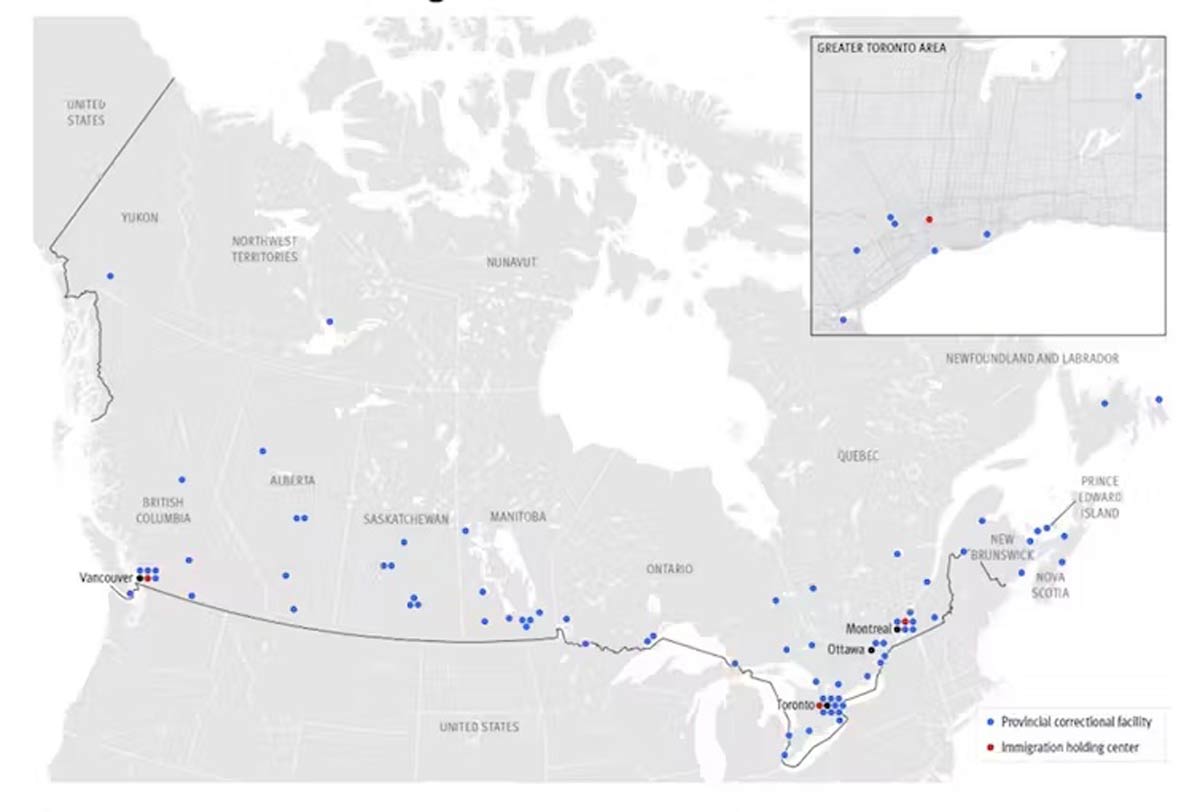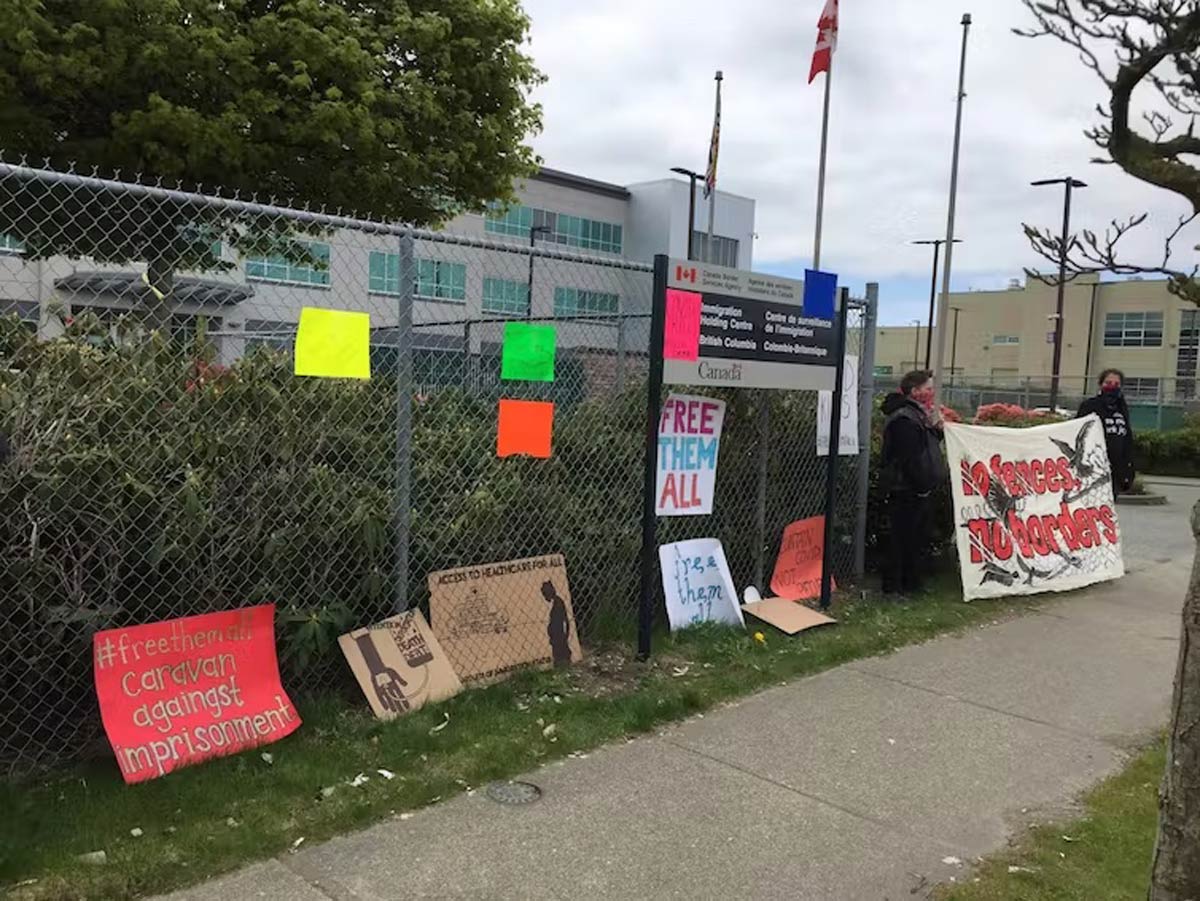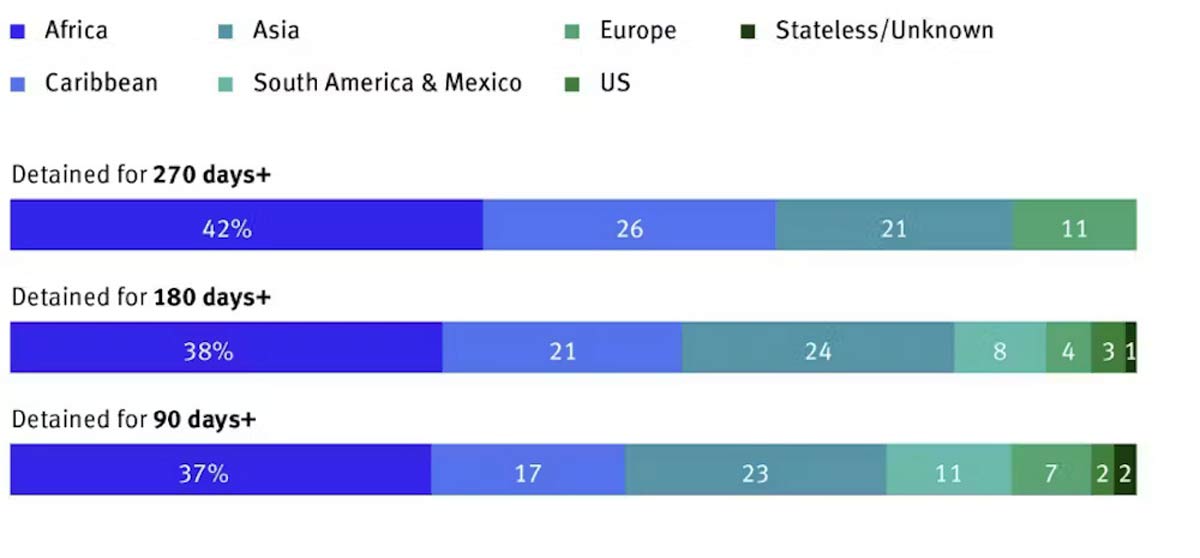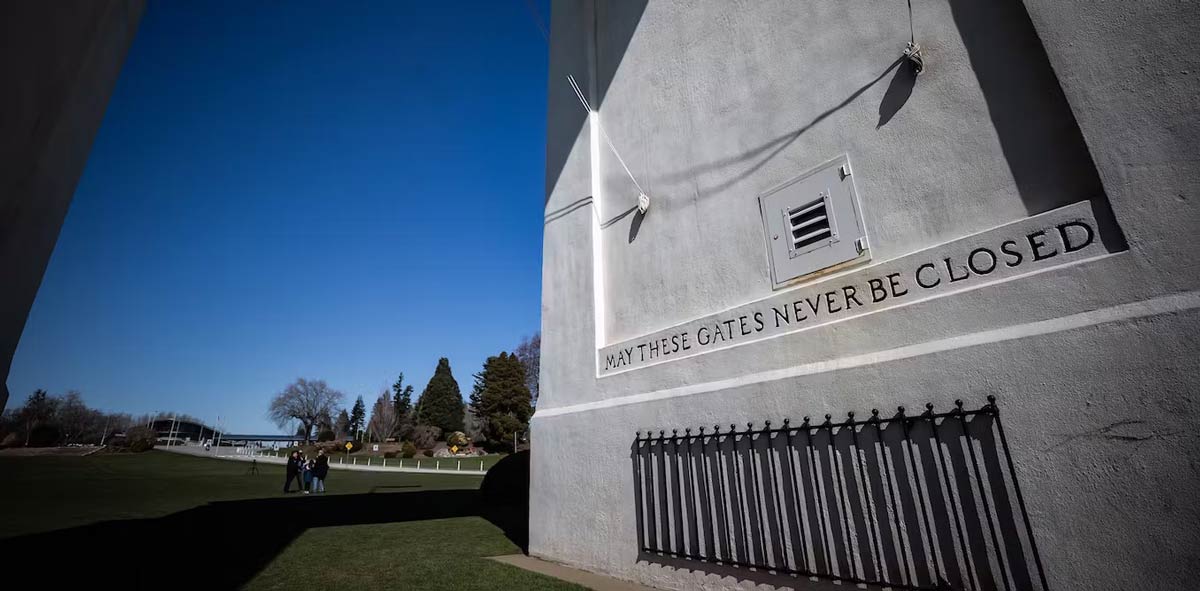Written by Linda Mussell, University of Canterbury, and Jessica Evans, Toronto Metropolitan University. Photo credit: The Canadian Press/Darryl Dyck. Originally published in The Conversation.
The peace arch monument on the Canadian side of the Canada-U.S. border crossing, in Surrey, B.C. Several provinces will no longer allow the CBSA to detain immigrants in provincial jails.
Despite its reputation as a refugee-welcoming and multicultural country, Canada imprisons thousands of people on immigration-related grounds every year. Many of these people are held in provincial jails under agreements between the provinces and the Canada Border Services Agency (CBSA).
Several Canadian provinces are terminating their immigration detention agreements with the CBSA.
In 2022, British Columbia became the first province to review the immigration detention system and end its agreement with the CBSA. Alberta, Saskatchewan, Manitoba and Nova Scotia have since followed suit. Québec and New Brunswick have also recently announced they’re ending their agreements.
Provincial jails are notorious for their poor conditions. Amnesty International and Human Rights Watch have found the detention of persons without criminal charges in these jails is unjust.
According to the CBSA’s data, the majority of immigration detainees posed no risk to public safety in 2021-22 .

While these provincial terminations signal a move in the right direction, they do not mean an end to immigration detention in Canada.
We’ve been studying the recent regional shifts in immigration detention in North America. Advocates have worked hard to place pressure on provincial governments to end their agreements with the CBSA. To maintain this momentum, action is needed at the federal level.
Immigration detention
The CBSA makes contracts with provinces to deliver immigration detention under the Immigration and Refugee Protection Act. This means the agency can detain permanent residents, foreign nationals and refugee claimants and has sole discretion over where detainees are held.
That might be a provincial prison, immigration detention centre, RCMP detachment, a port of entry, inland enforcement cell, immigration holding centre or federal prison.
The CBSA has sweeping powers including arrest, detention and search-and-seizure without a warrant. It is the only major law enforcement agency without independent civilian oversight to review policies and investigate misconduct.
Figures from the CBSA show that the number of immigration detainees in Canada has increased every fiscal year between 2016 and 2020. More than 32,000 people were detained during that time period. Between 2019 and 2020, 8,825 people were detained, including 136 children, 73 of whom were under the age of six.
In many cases, the CBSA has separated children from their detained parents. This is a violation of international law and goes against the best interests of the child. The CBSA does not track how many children are separated from parents.

Research has found that even brief amounts of time imprisoned is associated with increased stress, depression and anxiety. Migrants with mental health conditions are more likely to be detained in provincial jails and in isolation, where their conditions tend to worsen. Mental health issues become a barrier for release and are then used to justify continued detention.
Immigration detainees endure harsh conditions including solitary confinement and no set release date. Since 2013, more than 1,623 detainees have been held for longer than a year.
People from racialized communities, particularly people who are Black, are subject to profiling by the CBSA and imprisoned for longer periods.
With provinces ending agreements, the CBSA has indicated it will transfer more detainees to immigration holding centres operated by the CBSA. In our research, we have found that the CBSA is considering building more holding centres to expand its capacity to imprison people across Canada.

Federal government must also act
New rules under the Safe Third Country Agreement came into effect in March 2023. These rules bar migrants seeking entry to Canada via the U.S. from claiming asylum after crossing the land border. They make it more dangerous for people to cross and increase the risk of being detained.
The end of provincial agreements is not the end of immigration detention. Rights violations will continue regardless of where people are held. The ability to detain people for administrative purposes, the lack of a legal limit for detention and absence of oversight are all problems that remain in place.
Importantly, this change may provide impetus for the privatization of immigration detention, something that has been raised as a concern south of the border.
Federal changes are needed to end immigration detention, including practices like solitary confinement, imprisoning families and indefinite sentences.
The CBSA released imprisoned people at unprecedented rates during the COVID-19 pandemic. There is already an Alternatives to Detention program. While the current alternative is not without problems and continues the surveillance of migrants, it’s a step in the direction of humane treatment.
There must be greater community-based case management and funding for community supports as an alternative to detention. Through community engagement, we can prioritize housing, health care and education, and help migrants and asylum-seekers navigate the bureaucratic and legal systems. The focus should be on providing support, rather than policing and imprisonment.


